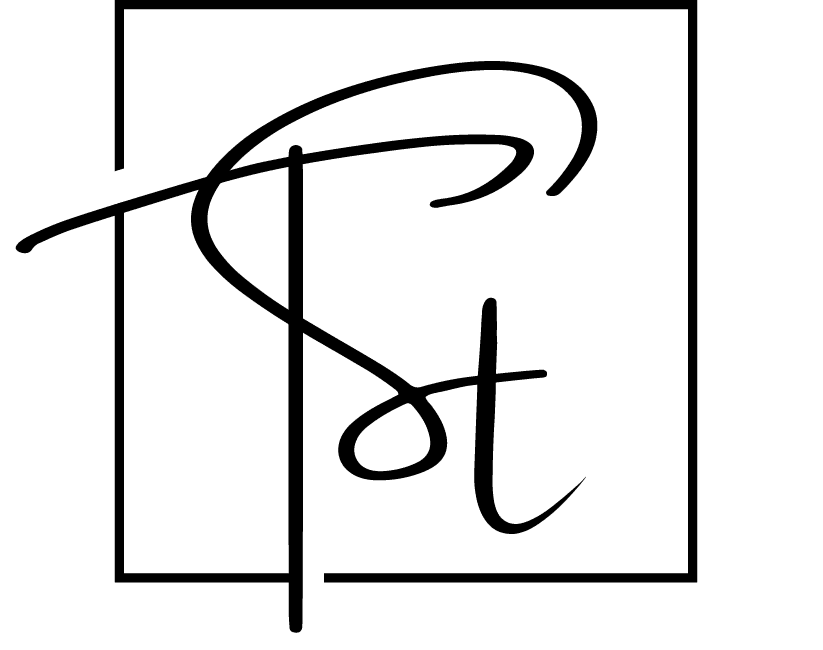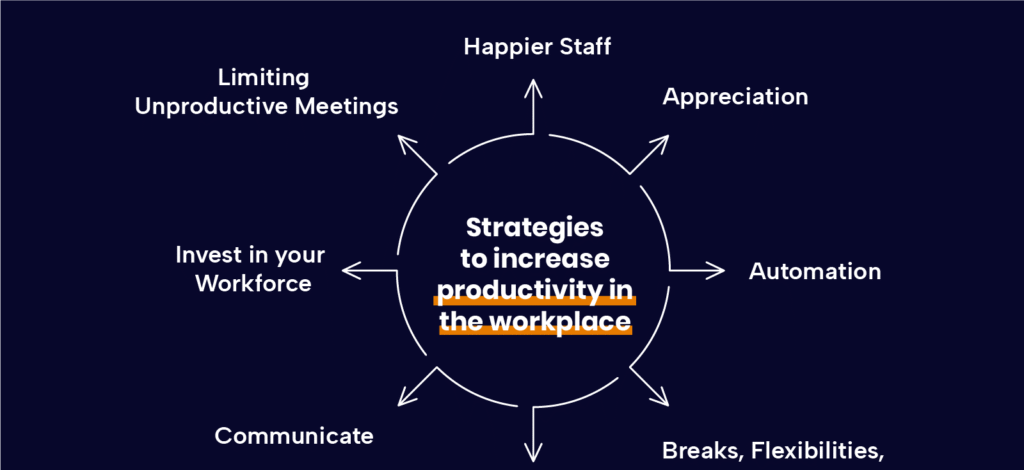Are you constantly feeling like there just aren’t enough hours in the day? You’re definitely not alone. Whether you’re working a 9-5, managing a side hustle, raising kids, or juggling all of the above—staying productive can be a real challenge. But here’s the good news: becoming more productive isn’t about working longer hours; it’s about working smarter.
In this article, we’ll explore seven practical, easy-to-implement strategies that can help you reclaim your time, boost your focus, and get more done starting today. No fluff, just real tips that work.
Why Productivity Matters (More Than You Think)
Before diving into the strategies, let’s take a moment to look at the bigger picture.
Think about how much time we spend scrolling, procrastinating, or starting tasks without finishing them. Those little moments add up. Being more productive doesn’t just mean ticking off tasks—it means you can create space for what truly matters, like spending time with loved ones, chasing your passions, or just relaxing guilt-free.
Ready to make a change? Let’s get started.
1. Start With Clear Goals and Daily Planning
Ever sit down to work and suddenly forget what you planned to do? Without clear goals, it’s easy to get distracted or stuck doing “busy work” that doesn’t bring real results.
Here’s the fix: Start your day—and your week—with a simple game plan.
How to Do It:
- Set weekly goals: At the beginning of each week, jot down your top 3 priorities. What will make this week a success?
- Plan your day the night before: Before you go to bed, create a to-do list for the next day with your three most important tasks at the top.
- Use time blocking: Assign specific blocks of time on your calendar for deep work, meetings, breaks, and even lunch.
Why it works: When you know exactly what needs to get done and when, you can start your day with clarity and purpose—no more wasting time deciding what to do next.
2. Beat Procrastination With the “2-Minute Rule”
We’ve all had that one task that lingers on our to-do list for days, maybe even weeks. And the longer we put it off, the harder it seems.
Enter the “2-Minute Rule”—a simple but powerful technique.
Here’s how it works:
- If a task takes two minutes or less, do it immediately. Reply to the email, file that invoice, return that call. These tiny actions take up mental space when they’re left undone.
- For bigger tasks, just start. Tell yourself you’ll only work on it for two minutes. Often, that’s enough to break the resistance—and once you’ve started, you’re likely to keep going.
This strategy helps you build momentum and prevents small tasks from piling up into overwhelming to-do lists.
3. Eliminate Distractions (Yes, Your Phone Too)
Let’s face it: we live in a world full of pings, pop-ups, and endless notifications. While technology has made life more convenient, it’s also made focusing harder than ever.
Here’s a reality check: Studies show it takes over 20 minutes to refocus after a simple distraction.
To stay in the zone:
- Turn off non-essential notifications. That includes social media, emails, and apps that aren’t critical during focused work blocks.
- Use “Do Not Disturb” mode on your phone or computer when working on important tasks.
- Try the Pomodoro Technique: Work for 25 minutes, then take a 5-minute break. It trains your brain to focus in short bursts, giving you regular rest without losing momentum.
Still not convinced? Think about how much time you might save in a week just by cutting your phone use by 25%.
4. Learn to Prioritize Using the Eisenhower Matrix
Have you ever finished an entire day of work and thought, “What did I actually accomplish?” Not everything on your to-do list holds the same value, and treating all tasks equally can be a recipe for burnout.
Let’s introduce a game-changing tool: The Eisenhower Matrix.
Here’s how it works:
The Eisenhower Matrix helps you divide tasks into four categories:
- Urgent and Important: Do these first. These tasks have deadlines and consequences if you delay.
- Important But Not Urgent: Schedule these. They’re tied to long-term goals, like learning a new skill or planning a project.
- Urgent But Not Important: Delegate if possible. These are often interruptions you might not need to handle yourself.
- Neither Urgent Nor Important: Eliminate or minimize. These are pure distractions.
This framework helps you spend your energy where it matters most, instead of wasting time on “urgent” distractions.
5. Create a Productive Workspace
Ever try working in a messy room or at a cluttered desk? It’s like your brain can’t settle. That’s because your environment shapes your focus—sometimes more than you realize.
To set yourself up for success:
- Keep it clean and clutter-free. A tidy workspace leads to a clearer mind.
- Have your essentials within reach: Notebooks, pens, water bottle—whatever you need to avoid constant interruptions.
- Add small things you love: Plants, natural light, or calming music can boost your mood and productivity.
You don’t need a fancy office. Just create a space that tells your brain, “It’s time to focus.”
Bonus tip: If you can, separate your work area from where you rest or relax. This helps your brain draw a boundary between work and personal time.
6. Master the Art of Saying “No”
This might be one of the hardest strategies—but also one of the most important. Saying “yes” to everything means you’re likely saying “no” to your own priorities.
Here’s how you can respectfully protect your time:
- Pause before replying: When someone asks for your time, delay your response until you’ve had a chance to evaluate whether it fits your priorities.
- Use gentle language: You don’t have to be rude. Try, “Thanks for thinking of me, but I won’t be able to take that on right now.”
- Set boundaries: Let people know your availability up front. This sets the expectation that your time is valuable.
Remember: Every “yes” you give is time taken away from your own goals. Be intentional about where your energy goes.
7. Take Breaks and Recharge
Wait—taking breaks is a productivity tip?
Yes! Here’s the surprising truth: resting makes you more productive. Trying to power through long hours without pause leads to burnout, mistakes, and slower progress.
Here’s how to rest smarter:
- Use the 90-minute rule: Focus for around 90 minutes, then take a longer 15–20 minute break. This mimics the brain’s natural energy cycles.
- Move your body: A walk, some stretches, or light exercise can clear mental fog and reboot your energy.
- Unplug completely: During your breaks, step away from screens. Give your brain a true breather.
Think of your brain like your smartphone—it needs regular charging, or it won’t perform at full capacity.
Putting It All Together
We’ve covered a lot, so let’s quickly recap the seven strategies to supercharge your productivity:
- Set clear goals and plan your days.
- Use the 2-minute rule to beat procrastination.
- Eliminate distractions (yes, even your phone!).
- Prioritize tasks using the Eisenhower Matrix.
- Create a distraction-free, inspiring workspace.
- Learn to say “no” to protect your time and focus.
- Take smart breaks to recharge your mind and body.
If that feels like a lot to change at once, don’t worry. You don’t need to apply everything right away. Start small. Pick one or two strategies that speak to you and try them this week.
Final Thoughts: Productivity Is Personal
Let’s be honest: there’s no one-size-fits-all approach. What works for one person might not work for another. The key is to experiment and be honest with yourself about what’s helping and what’s not.
Personally, I used to believe that waking up earlier was the ticket to productivity—but I’m a night owl by nature. Once I leaned into my natural rhythm and started doing deep work after dinner (instead of forcing 6 a.m. writing sessions), things changed dramatically. It’s all about finding YOUR flow.
The bottom line? Productivity isn’t about being perfect or squeezing every ounce of energy from your day. It’s about intentionally using your time and attention to create a life that feels full, not frantic.
What’s Your First Step?
Which of these strategies are you most excited to try? Is it clearing out your workspace, finally saying “no,” or planning your day the night before? Drop your thoughts in the comments below—or better yet, challenge yourself to apply just one of these today.
Remember: Progress beats perfection—one productive step at a time.
Thanks for reading! And if you found this helpful, don’t forget to share it with a friend who could use a productivity boost too.
✨ Stay focused. You’ve got this.
—
Keywords used naturally throughout this article: boost productivity, productivity tips, time management, work smarter, improve focus, eliminate distractions, daily planning, procrastination, time-blocking, effective goals, productivity hacks.
— End of Blog Post —



